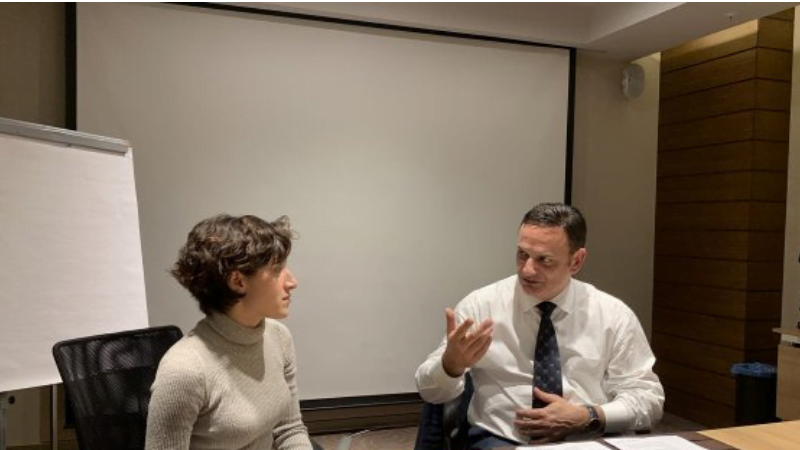Journalists who unearth wrongdoing are endangered when the institutions tasked with ensuring action is taken fail, resulting in a situation where the journalist is left to stand alone, PN MEP David Casa told The Shift News ahead of a debate on press freedom on Saturday.
“True investigative journalism is often fraught with risk and hardship and today that we live a post-truth era it has become increasingly thankless. Journalists unearth wrongdoing but it is a country’s institutions that must then ensure that action is taken against those exposed,” the PN Head of Delegation said.
“We endanger journalists the most when they are placed in a situation where they stand alone. It is when the institutions fail that journalists become most vulnerable,” Casa added.
Pelin Ünker, the Turkish journalist facing 13 months in prison for reporting on the Panama Papers, will take part in a debate on press freedom in Malta on Saturday with Maltese journalists and activists.
Ünker will be speaking on Saturday morning at the event which is being organised by PN Head of Delegation David Casa. The MEP has actively defended press freedom issues since the assassination of journalist Daphne Caruana Galizia.
The event coincides with the day marking 17 months since Caruana Galizia was killed in a car bomb a few metres away from her home. Ünker will attend the vigil that follows at 6.30pm in Valletta.
The Maltese authorities refused to give a travel visa to her one-year-old baby and husband because they couldn’t prove they wouldn’t overstay their visa and stay here illegally, according to Lovin Malta.
Ünker was previously charged with “insulting and slandering a public official” when she wrote about the already publicised links between former Prime Minister Binali Yildirim and his two sons, and five offshore companies in Malta.
While she is still free and is able to file an appeal, Ünker has said she still expects to spend some time in prison.
Her sentence was widely condemned by international press and media freedom watchdogs with the Reporters Without Borders referring to Turkey as “the world’s biggest prison for professional journalists”.
Malta was also recently criticised by Members of the Human Rights Council for refusing to conduct a public inquiry into the murder of Daphne Caruana Galizia, and for serious issues surrounding media freedom and the lack of protection afforded to journalists in the country. It is the latest in a list of condemnations by international bodies and organisations, that also criticised the government for failing to take action against SLAPP (Strategic Lawsuits Against Public Participation) aimed at silencing journalists.
They referred to the threat from Russian banker Ruben Vardanyan who demanded, through a law firm in London, that The Shift remove an article on the findings of an investigation by the OCCRP based on a leak of 1.3 million bank transactions that showed how some US$ 5 billion of Russian money was moved into Europe and beyond. The Shift has refused to remove the article, and published the letter received.
SLAPP are intended to financially cripple journalists through threats of lawsuits in foreign jurisdictions where it would be impossible for media workers in other countries to mount a defence.












